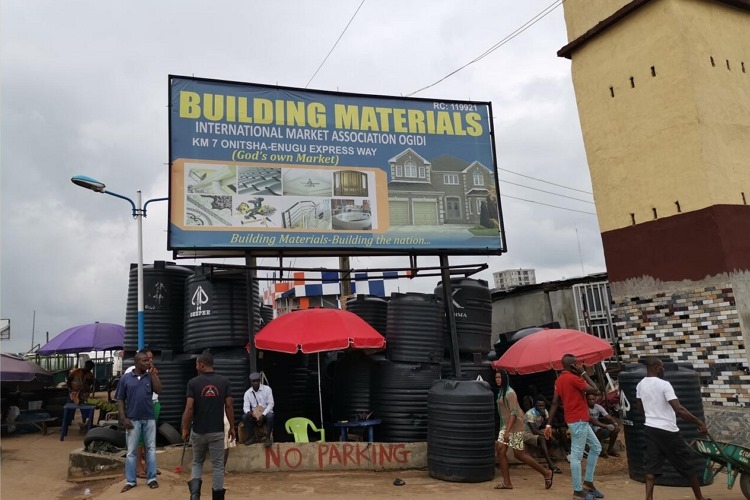The absence of regulatory incentives for local production of building materials continues to exacerbate the housing crisis, a report by BuyLetLive has stated.
It added that Nigeria remains heavily reliant on imported construction materials, leaving the industry vulnerable to exchange rate volatility and global inflationary pressures and that localising the production of materials such as tiles, roofing sheets, and cement could help stabilise costs and improve affordability over time.
According to the report, the Nigerian government has implemented several policies aimed at enhancing housing affordability.
It read, “Initiatives like the Family Homes Fund and the National Housing Fund were designed to provide financing options for low- and middle-income earners. However, these programmes face significant challenges, including limited funding, bureaucratic delays, and a lack of transparency.”
The report also noted that inflation has intensified affordability challenges for households in the housing market.
It added, “Rising mortgage rates and escalating property prices outpaced income growth, forcing many families to downsize, delay homeownership, or struggle with increased rental costs. Inflation has triggered a notable shift in housing preferences. Middle- and low-income earners are increasingly seeking smaller, more affordable units, such as studio apartments or shared housing arrangements.
Demand for housing in suburban and peri-urban areas is also growing, as these locations typically offer lower rents and purchase prices compared to city centres.
“High-end residential properties, once a cornerstone of Nigeria’s luxury real estate market, are experiencing slower sales as the pool of affluent buyers decreases. Developers who previously focused on luxury housing are beginning to diversify their offerings to include mid-income and affordable housing options to meet changing demand patterns.”
The report noted that inflation emerged as a critical factor shaping economic and social realities in Nigeria.
It further read, “In 2024, the persistent upward trend in inflation highlighted the complex relationship between various economic factors, including fiscal policies, monetary policies, exchange rates, and international trade dynamics. The currency fluctuations were one of the most significant economic challenges faced by the country in 2024. The naira saw a 24.3 per cent decline against the US dollar, falling from an exchange rate of N1,413: $1 at the start of the year to N1,757: $1 by the end of November, marking the highest level in over two decades, according to the National Bureau of Statistics.
It stated, “This persistent rise has placed immense pressure on households, businesses, and entire industries, including the real estate market. As the cost of goods and services rises, housing demand faces significant disruption. From increasing construction expenses to declining affordability and shifting buyer preferences, inflation’s impact on Nigeria’s housing sector is profound and multifaceted. Inflation intensified affordability challenges for households in the housing market. Rising mortgage rates and escalating property prices outpaced income growth, forcing many families to downsize, delay homeownership, or struggle with increased rental costs.
“While inflation posed a significant challenge, it also presented an opportunity for innovation in Nigeria’s housing market. Developers are increasingly adopting cost-saving technologies such as modular construction and prefabricated materials. These methods can reduce construction timelines and costs while maintaining quality standards. Similarly, renewable energy solutions, such as solar panels, are gaining traction as a way to reduce utility costs for tenants and homeowners. Energy-efficient building designs and smart home technology are also emerging trends, helping to attract buyers and renters seeking long-term savings on energy bills.”















